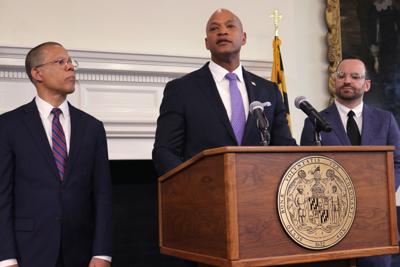MARYLAND - Governor Wes Moore has vetoed a bill that would have established a commission to explore possible reparations for the descendants of slaves in Maryland.
Senate Bill 587 passed both houses of the Maryland legislature and went to Moore’s desk in April. The legislation would have established the Maryland Reparations Commission to study the feasibility and appropriate reparations for those whose families had been impacted by slavery.
The bill was passed in the Maryland House on fully partisan lines with overwhelming Democratic support. Moore, a Democrat and currently the country’s only black governor and Maryland’s first, vetoed the bill late Friday, May 16.
“But in light of the many important studies that have taken place on this issue over nearly three decades, now is the time to focus on the work itself: Narrowing the racial wealth gap, expanding homeownership, uplifting entrepreneurs of color, and closing the foundational disparities that lead to inequality — from food insecurity to education,” Moore argued after vetoing the bill.
Senate Bill 587 passed both chambers with margins large enough to override a veto, should the lawmakers who voted for it to attempt it. The legislature is not scheduled to meet until the next 90-day session in January.
“The Senate will closely evaluate each veto from the Governor’s Office and have more details on possible action in the near future,” said David Schuhlein, a spokesman for Maryland Senate President Bill Ferguson.
In his veto letter, Moore said Maryland has launched numerous commissions in the past 25 years to examine slavery, including the Maryland Lynching Truth and Reconciliation Commission and Impact of the History and Legacy of Slavery in Maryland.
“The scholarship on this topic is both vast in scope and robust in scale,” Moore wrote. “And we are grateful for the Marylanders who have contributed their expertise to the vital project of understanding how the legacy of slavery continues to impact Black communities in our state today.”


